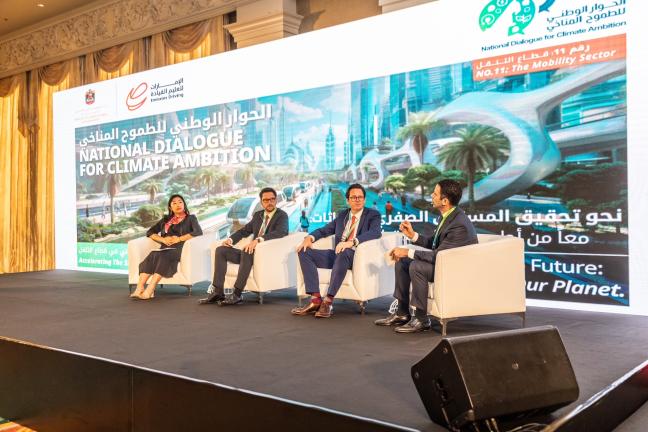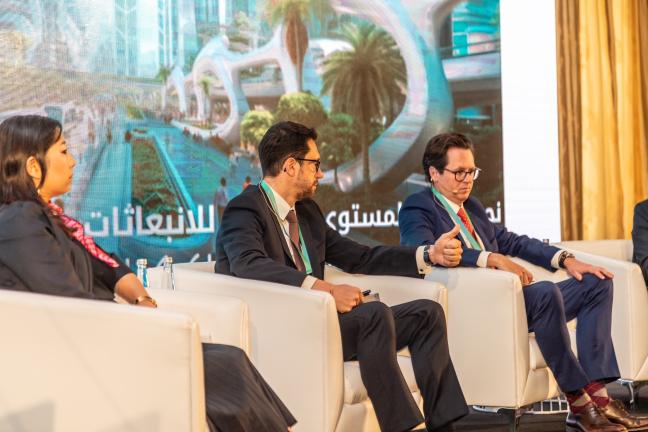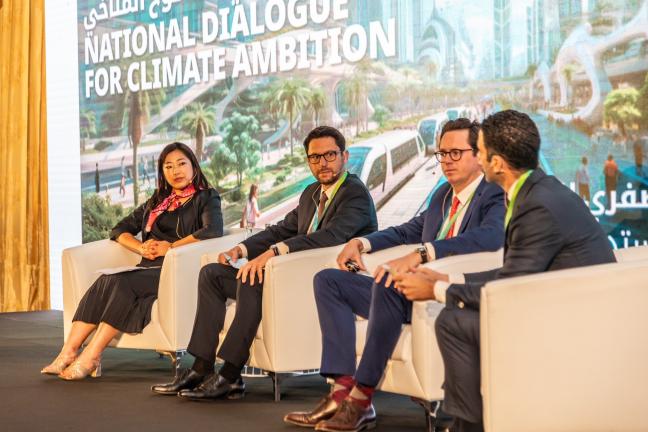The latest UAE National Dialogue for Climate Ambition, focused on mobility, took place this week in Abu Dhabi. IRU outlined key scenarios to achieve net-zero CO₂ emissions in commercial road transport.
United Arab Emirates Minister of Climate Change and the Environment, HE Mariam AlMheiri, opened a major dialogue in Abu Dhabi this week on the importance of decarbonising ground transport mobility and collaboration to achieve net zero goals. The dialogue was organised by the Ministry and Emirates Driving.
Speaking on the main panel alongside McKinsey and FIA, the International Automobile Federation, IRU took the audience of leading Emirati public and private sector figures through key challenges regarding road transport decarbonisation transition scenarios.
IRU Senior Director for Strategy and Development Vincent Erard said, “The road transport industry, under IRU’s Green Compact, is fully committed to reach carbon neutrality by 2050.”
“But to achieve this goal, our industry needs to decouple energy consumption from road transport demand, and then transition over the longer term to cleaner energy carriers using alternative fuel sources,” he added.
Focusing on research findings from IRU’s Green Compact, an industry wide commitment and road map for commercial road transport to become carbon neutral by 2050, Vincent Erard charted transport decarbonisation strategies, infrastructure challenges, the role of technology and innovation, and how to build trust and collaboration between different stakeholders.
Vincent Erard outlined a decoupled “duplex” transition strategy, saying, “we can halve CO₂ emissions from commercial road transport in the short term by driving efficiencies, despite the continuous rise of freight and passenger transport demand."
“At the same time, this allows us to invest in alternative fuel technology and infrastructure now, especially for longer distance services and heavy-duty vehicles, to build a robust, practical and economic transition over the medium term to achieve our overall decarbonisation objectives”, he concluded.
Vincent Erard went on to outline a range of specific efficiency solutions in logistics and mobility, including more efficient vehicles with improved aerodynamics, more effective tyres or lighter vehicles; better trained drivers with eco-driving and telematics for monitoring; more efficient logistics with digitalisation, high-capacity vehicles, more efficient border crossings, and load consolidation centres; and better organised passenger transportation with integrated ticketing and digital platforms.
The eleventh in a series of sector specific dialogues organised by the UAE government in the run up to COP28 Climate Change Conference later this year, the high-level event also included speakers from the Ministry of Energy and Infrastructure, Driving Emirates and local companies and organisations.







